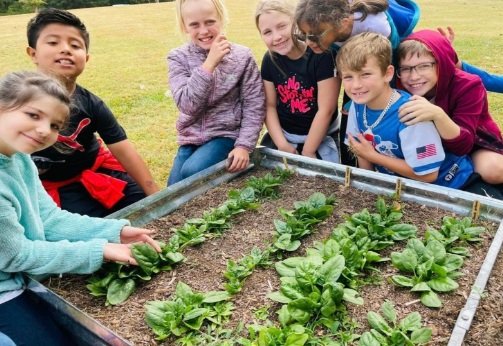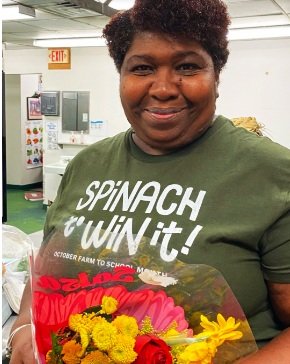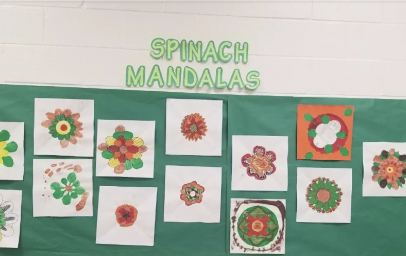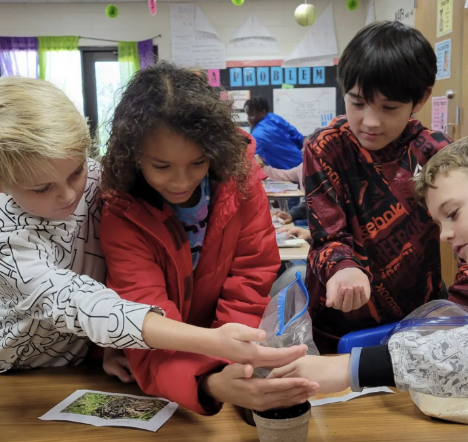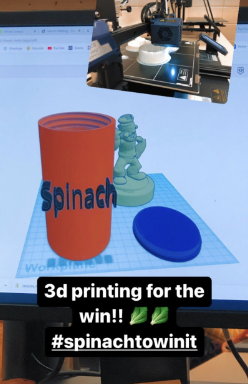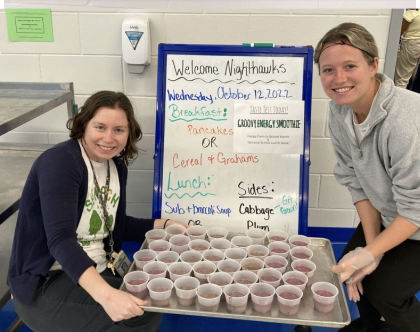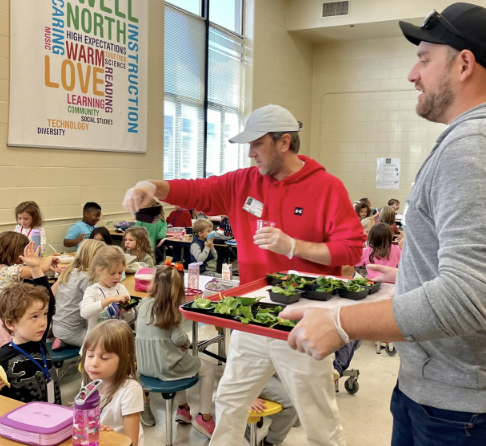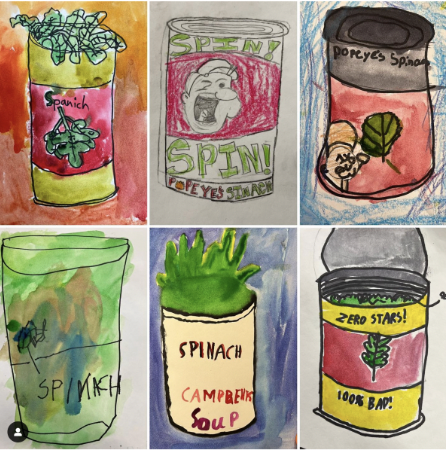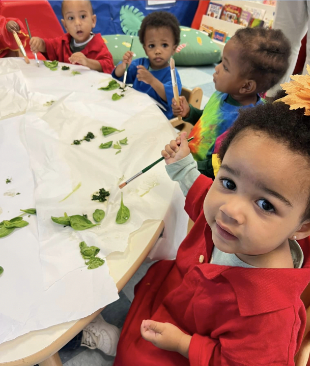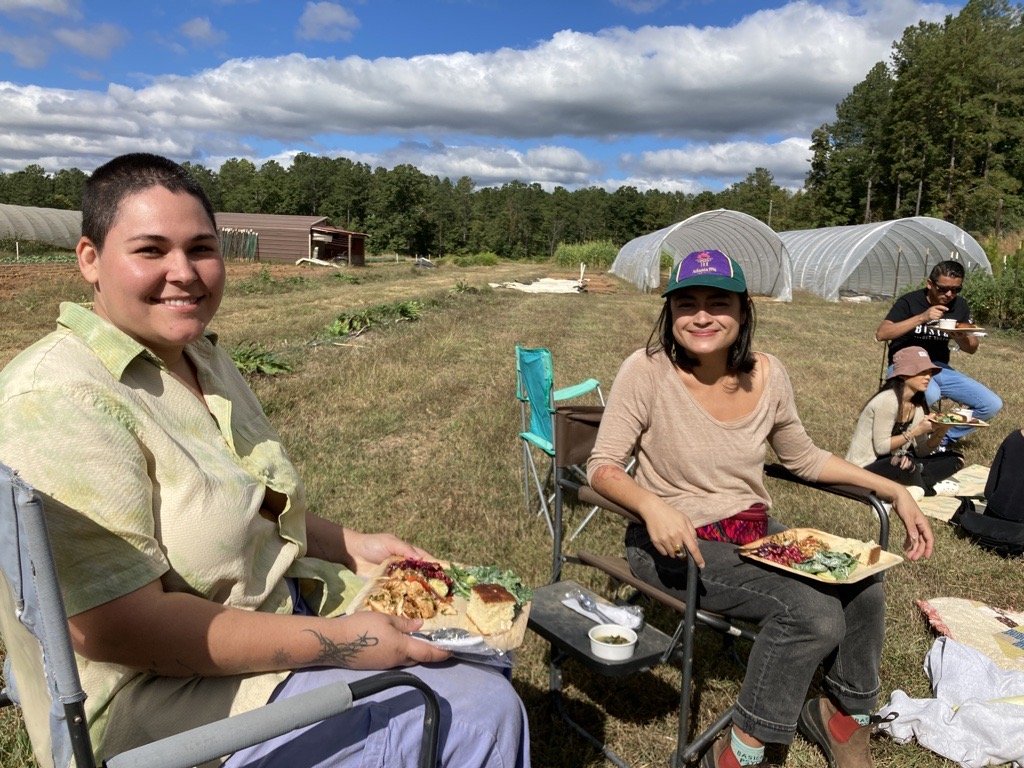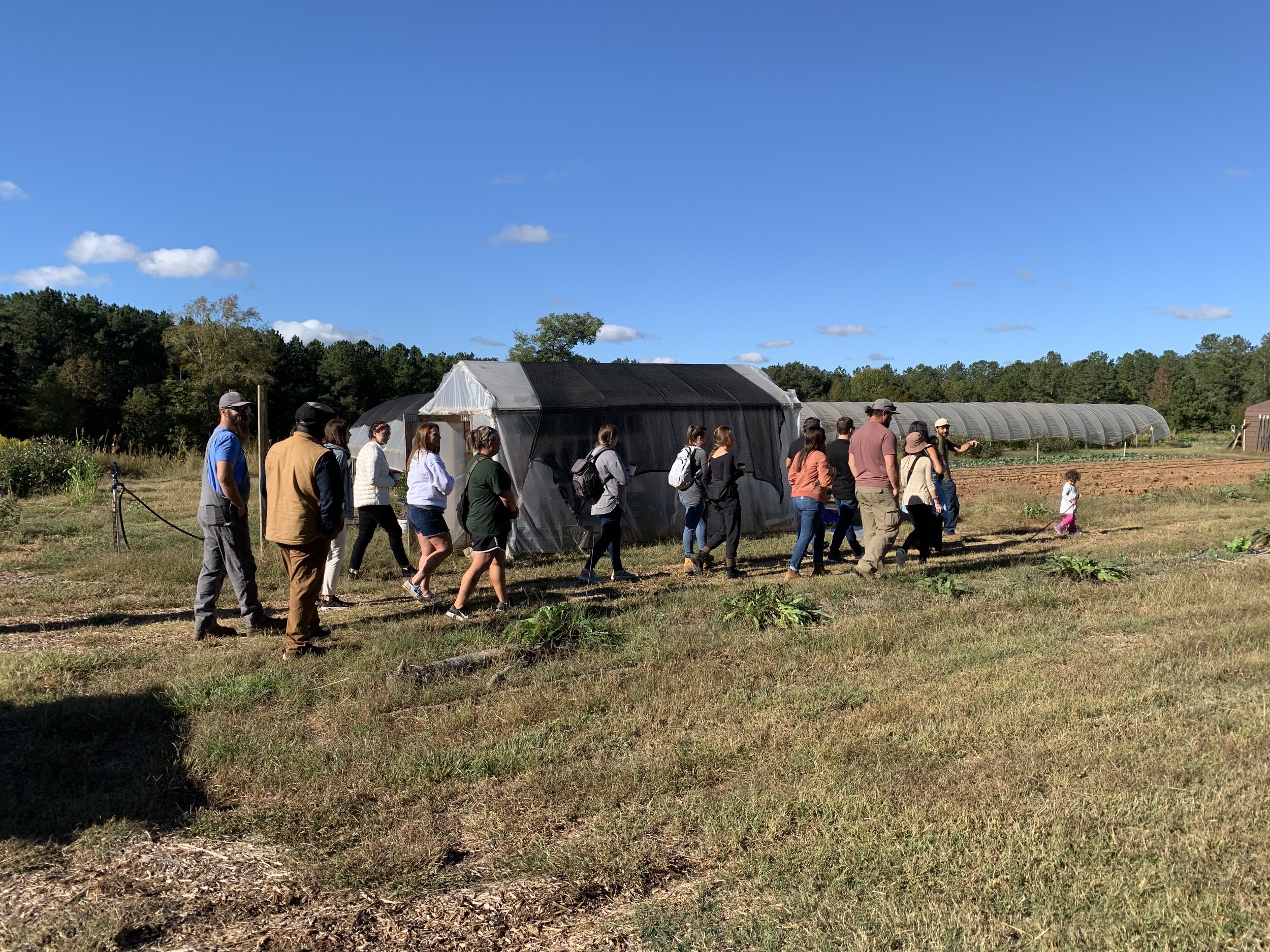What do you think is the most important trend in agriculture affecting Georgia farmers right now?
In a positive way, I believe 2020 really helped people connect the dots to just how insecure our food system really is, and how vulnerable we are to just supply chain shocks. The way that we respond has been phenomenal. I will admit a lot of people probably never even looked at my face on Facebook, but I've been in all of these gardening groups. I'm the person who they could have sworn was a 70-year-old lady giving everyone advice on how to cultivate tomatoes in your backyard for the first time.
There is this thirst for knowledge and connectedness around our food and where it comes from and how we can be a part of that, that I believe it's a profound opportunity for us to expand upon that curiosity and grow the next generation of farmers and build out what those support systems look like. You guys, by your own admission, you went to technical colleges to learn this because you didn't want to go through an entire four-year curriculum just to get the essentials in order for you to be efficient in this new love of yours. I don't even consider it a passion or identity or a job because to farm you must love it or be born in it and trapped in it.
That's one aspect. The negative aspect is the lack of control over the marketplaces and the opportunities in this space. We have policies that on surface they say, "This is essential to protect society, to make sure that marketplace is free, fair, equitable for everyone," but we know it's not equitable for everyone. How do we think differently about the end game goal, which is to get more of Georgia-grown foods on the tables of families and get more money in the pockets of farmers?
For me, when I'm travelling throughout the state and I'm talking to some of the more rural farmers who don't have as much access as even you guys do, their number one question is, "How are you going to get my foods on the shelves of the grocery stores?" I tell them, "I'm not, but this is what I'm going to do." Reality is you've got to be able to scale to produce in order to get the products on the grocery stores. Then there's that extra layer of, you're selling this wholesale to them at the prices they've determined. There's no negotiating because they have all the power.
That's now cutting into your profit margins and your end-dollar is smaller. What if we built more farmers' markets? What if we create more digital opportunities for people to know about you and build more agritourism regulations so that you have a tourism component where people are coming to tour your farm, see your operation? You're making more of your money. You're becoming more self-sustaining in your business practice. At the end of the day, that's what you really want.
Then in about 5 years when the grocery stores are not as profitable, they'll come back and they'll want to renegotiate terms. Guess who has all the power? You do. Then you can negotiate terms that are more favorable for you. That's how we shift the narrative. We can't operate from a space of weakness when we're trying to negotiate deals. We've got to take some bold steps, so we can shift that power structure to where we are winning in the end.
What do you think organic farmers in Georgia need from the Department of Agriculture?
Support. When you made that apparent that that need is not there, and it is something that we need to incorporate, it's not just having somebody sit in that seat and champion those ideas, we need a whole educational component behind it.
I do understand Georgia Organics has their system, but I do believe there's power and redundancy as well. That's what I'm looking at. Then it is how can we build community around this. It can't be so stoic that it's just government and private. There needs to be community support around that so that it's organic in its adaptation.
What role, if any, do you think the Georgia Department of Agriculture should have in dealing with climate change?
I think we can do a lot. The sunflowers you're growing, there's sequestering. They can remove heavy metals and toxins out of the soil. If you do the research and you look at Chernobyl, that was one of the two crops they planted. The other was cannabis and hemp to try and remove some of the radiation. I believe it's about education and educating growers on companion planning. I wouldn't say commodity farming doesn't have its value because everything has a value, but I do want to lean in more to how can we add crop rotation or companion planning so that we use less toxins in the soil.
We do it a lot with our cut flowers, so we know which flowers that we can grow next to each other because they're going to take care of, much like what you guys do with your vegetables, that they're going to take care of each other. There's been a lot of research in the use of chrysanthemum oil and what it can do for pesticides, but also for human beings too, for figure. I believe agriculture can do a lot. There are emerging opportunities in agriculture structure as carbon farming, which is selling carbon credits to corporations by types of farming. We don't have a system for that here in Georgia. It is a new opportunity.
I definitely want to look into that. Also going back to the Hemp cannabis conversation, let's look at it from beyond where everyone likes to take the conversation into medicinal versus the psychedelic attributes of it. Let's look at it from the environmental aspect of this as well. Then one day I would love to be able to get in zoning codes where you're not tied into the grid, and you can have solar or hydro-powered facilities because I think that's impactful. You can't do that yet in Georgia. As a matter of fact, they just passed a bill, if not this term, last term, where certain parts of South Georgia must be tied into a grid. They don't have an option.
Soil health was identified as the number one issue our farmers care about. What does soil health mean to you, and how can the GDA better support farmers who are working towards improved soil health?
There is a direct relationship between the global erosion of topsoil and global warming. Also, when we talk about locally grown agriculture, we don't speak about it from the components, the aspect of climate change. In the cut flower industry in the United States in the 1990s, they created the Andes Free Trade Agreement or Fair Trade Agreement, which incentivize Columbian and cocaine farmers. Columbian and Ecuadorian cocaine farmers to turn their farms into cut flower farms. Because of that all of the cut flower farms disappeared overnight, which is why we import over 80% of our flowers.
They come mostly from South America, Africa. We get some from Europe, like Holland, different places like that. In this, they did a study and they found that, and by the way, Memorial Day is the day in which people consume the most flowers, not Valentine's Day or Mother's Day. They found in 2019 that we imported 141 million blooms. Now we're importing flowers every single day but 2019 on Valentine's Day, 141 million roses. That was the equivalent of 78,000 cars being on the road for an entire year. We're importing flowers every single day. When we lean into locally grown, that reduces the carbon footprint because we're not importing and exporting as much.
What's the most important function or program at the department that you want to improve?
Efficiency. I don't believe the office is running efficiently. There is a lot of waste in terms of dollars and efforts. There is a high churn rate with staffing. It's very difficult for this department to match private dollars in terms of salary and compensation for workers. Veterinarians and our shelters are overrun and they lack resources. The list is long. Pet breeding is a huge issue here in Georgia, and anyone can breed a pet.
If the Department of Agriculture actually started charging a fee, that's revenue, a licensing fee to breeders, that's revenue for the Department of Agriculture, which means more resources for farmers, more efficiency. It's just those things is finding where we are not running in an efficient way, peeling back those layers. I'm just going to be honest with you, cleaning house because there are a lot of people who are there who have no desire to do what is required of the job and attracting and retaining the best talent. Honestly, it's a very long list of things that need to be done, but it can be done.
Georgia farmers are more efficient and more productive than they've ever been, yet hunger and farmer stress are both at all-time highs. What's the solution for this paradox?
The solution is you build out farmer support systems because suicide rates amongst farmers are the highest per profession. You find out where they're losing. For me, it is why is this so high? When I talk to you guys about interest rates or mortgage, that financial, when you're spending so much to run an operation that's making so little, this is a tie to your identity. It's not just a business where you can just say, "Okay, I'm done. I walk away from this."
Farming is everything for most people who are in it. Having resources for mental health going to be very important. Building community within those communities so that when you're going to the Department of Agriculture, you're not speaking to some stranger. You're speaking to your neighbor or a friend down the street because they work in that department and they live in that community.
It's also listening. I have my ideas about what I want to change, but it's like the comment you made about, "Well if we bring in cannabis to him, this is going to impact rental rates." Now you're bringing to me the problems you are seeing. Now, this is something new I add to my ever-never-ending list of, "Okay, so this is what we got to work on," and as when you told me we need a branch that focuses on organic farming. "Okay, so now we've added this to the list."











